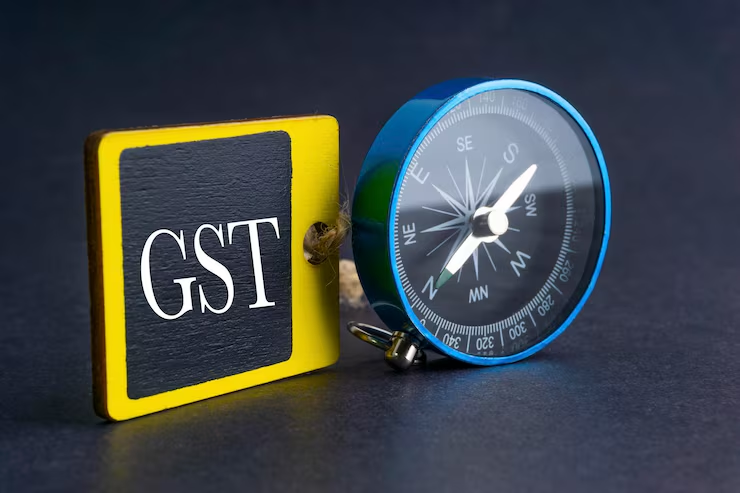
Understanding Literoticatags: A Deep Dive into How Tags Shape Online Erotica Communities
The digital age has transformed how we read, write, and explore stories — especially those that deal with adult themes. Among the many online platforms that have flourished, Literotica has stood out for over two decades as one of the largest hubs for erotic storytelling. Within this vibrant community, “literoticatags” play a pivotal role.
But what exactly are literoticatags, and why are they so important to both readers and writers? Let’s unpack the meaning, purpose, and influence of Literotica’s tagging system — and how it shapes the overall user experience on one of the internet’s most enduring creative platforms.
What Are Literoticatags?
In simple terms, literoticatags refer to the keywords or labels that categorize stories on Literotica. Much like hashtags on social media or metadata on blogs, these tags help classify content based on genre, theme, kink, or relationship type.
When users browse Literotica, they often look for stories that match specific interests — whether romantic, fantasy-based, or more explicit. Tags make this possible by organizing a massive library of user-generated content into accessible, searchable categories.
For example, a story might include tags like:
- Romance
- First Time
- Fantasy
- Lesbian
- Mind Control
- Non-Consent/Reluctance
- Mature
Each of these tags tells a reader what to expect before clicking. This transparency is crucial for both comfort and consent — a hallmark of responsible adult storytelling.
The Purpose Behind Literoticatags
1. Improving Searchability
With millions of stories available, Literotica’s tagging system helps readers narrow down their searches. Whether someone is looking for romantic erotica or supernatural adventures, tags act as a quick filter.
Without literoticatags, finding relevant stories would feel like searching for a needle in a haystack. Instead, tags provide structure to the chaos — connecting people with content that aligns with their interests.
2. Enhancing Reader Safety
One of the most significant purposes of literoticatags is content awareness. Some topics, such as BDSM or fantasy-based non-consensual scenarios, can be sensitive. Tags ensure readers know what kind of material they’re about to encounter.
This makes tagging not just a matter of convenience — but of ethics. It respects personal boundaries, comfort levels, and mental well-being.
3. Supporting Writers
For authors, tags are powerful promotional tools. A well-tagged story reaches the right audience faster, earns more engagement, and ranks higher in Literotica’s internal search engine.
Writers who understand how to use literoticatags strategically can build loyal readerships, attract feedback, and improve their writing visibility.
How Literoticatags Work in Practice
When an author submits a story to Literotica, they are prompted to select categories and tags. These might include:
- Genre tags: Romance, Sci-Fi, Fantasy, Fetish, etc.
- Character tags: Male/Female, F/F, M/M, Group, Transgender, etc.
- Scenario tags: Cheating, Voyeurism, Dom/Sub, Exhibitionism, etc.
- Tone or theme tags: Sweet, Rough, Dark, Romantic, Humorous.
Readers can then search for combinations of these tags — like “Romance + First Time” or “Fantasy + Mind Control” — to discover stories that perfectly match their mood.
Popular Literoticatags and What They Represent
The popularity of certain literoticatags changes over time, reflecting cultural trends and shifting fantasies. Some consistent favorites include:
1. Romance
Romance remains one of the most timeless literoticatags. It’s not always about explicit detail — sometimes the emotional connection, longing, and passion between characters captivate readers even more.
2. First Time
The first time tag explores themes of discovery, vulnerability, and excitement. Readers often find these stories relatable and nostalgic, revisiting the intensity of first experiences.
3. BDSM
BDSM tags (Bondage, Discipline, Sadism, Masochism) cover a wide spectrum of power dynamics. These tags help ensure that readers who enjoy such content can find it — and that others can avoid it if it’s not their preference.
4. Lesbian / Gay / Transgender
LGBTQ+ literoticatags allow inclusivity and representation in erotica. They give visibility to queer stories that explore identity, intimacy, and love beyond heteronormative limits.
5. Fantasy / Sci-Fi
Imaginative tags like fantasy, sci-fi, or supernatural let writers merge eroticism with creativity. Whether it’s elves, aliens, or time travel — these literoticatags open endless storytelling possibilities.
The Evolution of Literoticatags
When Literotica first launched in 1998, the platform had limited categories and tagging wasn’t as refined. Over time, as the community expanded and diversified, literoticatags evolved to cover nuanced themes and genres.
Today, the system reflects not just sexual preferences but emotional tones, character relationships, and even writing styles.
For example:
- Early tags: Romance, Hardcore, Lesbian
- Modern tags: Slow Burn, Polyamory, Age Gap, Aftercare, Consensual Non-Consent
This evolution mirrors broader cultural progress — where open conversations about consent, identity, and emotional well-being have reshaped how adult content is created and consumed.
Why Literoticatags Matter Beyond the Website
The concept of literoticatags extends far beyond Literotica itself. It represents how the adult content industry has matured in terms of:
- Transparency: Helping users make informed choices.
- Accessibility: Making diverse fantasies discoverable.
- Community Building: Connecting like-minded readers and writers.
- Respect: Upholding consent and boundaries in storytelling.
In many ways, Literotica’s tagging structure influenced how modern platforms — including fanfiction websites, romance forums, and even adult streaming sites — categorize and moderate user-generated content.
Best Practices for Using Literoticatags as a Writer
If you’re a writer looking to publish on Literotica, using tags effectively can make or break your story’s visibility. Here are some tips:
- Be Accurate: Only use tags that genuinely represent your story’s content. Misleading readers can lead to negative feedback.
- Mix Broad and Specific Tags: Combine general tags (like Romance) with niche ones (Older Woman/Younger Man or Public Sex).
- Limit Tag Overload: Too many tags can confuse readers. Stick to the most relevant ones.
- Update Tags Over Time: If you edit or expand your story, adjust the tags to match new developments.
- Study Popular Tags: Browse trending literoticatags to understand what readers are searching for.
Reader’s Perspective: How to Use Literoticatags Wisely
From a reader’s point of view, tags can serve as both a guide and a safeguard.
- Use filters: Search using multiple tags to find the perfect story type.
- Respect tags: Avoid complaining about content that was clearly tagged — that’s part of the system’s respect culture.
- Explore safely: Tags allow readers to explore new genres gradually, without stumbling into content that feels uncomfortable.
Ethical and Cultural Dimensions of Literoticatags
The tagging system also plays a cultural role in shaping how society discusses adult topics. By labeling and organizing erotic themes, literoticatags help normalize conversations around sexuality, fantasy, and emotional exploration.
This categorization fosters:
- Body positivity
- Sexual openness
- Mutual respect and consent awareness
At its best, Literotica’s tagging culture proves that erotic storytelling can be responsible, expressive, and artistic — not just explicit.
The Future of Literoticatags
As AI-generated content, interactive storytelling, and audio erotica become more mainstream, literoticatags will likely evolve even further.
Future tags might include:
- AI Narratives
- Virtual Reality Encounters
- Voice Erotica
- Interactive Stories
These new categories would continue Literotica’s tradition of embracing innovation while maintaining reader control and comfort.
Conclusion
The world of literoticatags may seem niche, but it represents something far larger: the evolution of how humans share, discover, and respect intimate storytelling online.
Through tagging, Literotica empowers both readers and writers to connect safely, creatively, and confidently. It’s a system that blends technology, psychology, and art — ensuring that every fantasy, no matter how unique, can find its audience.



















